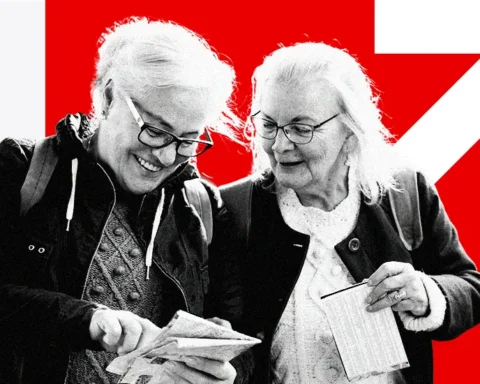In a recent nationwide referendum, Swiss voters have decisively chosen to increase their state pensions, allowing for an extra month’s pension each year. This move, aimed at improving living standards for the elderly, has sparked significant discussion around the country’s economic priorities and the welfare of its aging population.
Voters Overrule Government Concerns
Despite warnings from the government that the pension increase would be financially unsustainable, nearly 60% of Swiss citizens voted in favor of the proposal during Sunday’s poll. This decision came alongside a rejection of the proposal to raise the pension age from 65 to 66, with 75% voting against it. “This time, they said enough was enough,” remarked a spokesperson from Avivo, a Swiss association advocating for pensioners’ rights, celebrating what they described as a “historic victory for retirees.”
Challenges of High Living Costs
Switzerland, known for its high cost of living, especially in cities like Zurich and Geneva, presents significant financial challenges, particularly to its elderly citizens. The maximum monthly state pension of €2,550 is often cited as insufficient. Health insurance premiums, mandatory for all, continue to rise, disproportionately affecting older residents and vulnerable groups such as women who took career breaks and immigrants who have spent decades contributing to the local economy.
Economic Considerations and Democratic Decisions
Swiss voters have historically heeded government advice on financial issues in past referendums. However, the recent decision marks a significant departure, reflecting a broader desire to prioritize social welfare over austerity. “Voters, looking at Switzerland’s booming economy, clearly believe their country can afford it,” noted a political analyst. This referendum not only aligns pensions with the existing salary system, which includes a double payment in November to aid with Christmas expenses, but it also underscores the Swiss commitment to maintaining a balanced lifestyle, rejecting increases in the retirement age.
A Shift Toward Social Support
The Swiss referendum reflects a strong voter mandate for better support for the elderly, challenging the government’s fiscal caution. It also illustrates the power of direct democracy in Switzerland, allowing citizens to influence critical welfare policies directly. As Switzerland continues to navigate the complex interplay of economics and demographics, the outcomes of this referendum could have long-lasting impacts on its social policy landscape.







